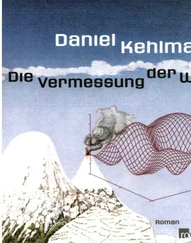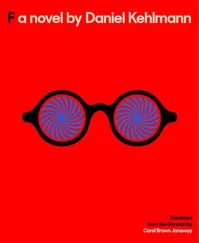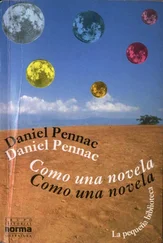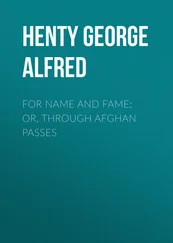“Please help me!”
With an impatient movement he motioned for her to come with him. The police station, only one street away, was small and dirty. For some incomprehensible reason her travel bag and her watch were taken away. Maria was made to sit in a tiny room and wait.
For a long time, nothing happened. The clock on the wall had stopped, the hands didn’t move. Maria lay her head on her arms. Time seemed to stand still. She was dizzy with boredom. At some point the door opened, a man in uniform came in and spoke to her in English.
“My God, finally! Please help me.”
Her passport, he said, was old.
“Excuse me?”
The sign in the passport. Old.
She didn’t understand.
He looked up at the ceiling and thought for awhile, until he found the right words: her visa had expired.
“Well yes of course! I was supposed to fly out yesterday, but nobody came to collect me.”
She couldn’t stay here without a visa.
“But I don’t want to stay here!”
Not possible. Not without a visa.
She rubbed her eyes. She felt utterly weak. Then she explained the whole thing as slowly and clearly as she could. She said she was a guest of the government, she described the delegation of journalists and their tour. She was a guest of the state! And then they’d obviously forgotten her and the plane had left without her.
He said nothing for awhile. Loud laughter was audible from the next room. Here without visa, he said finally, not permissible.
She began at the beginning again. She recounted the whole thing all over again: delegation of journalists, tour, guest of state, collect, forget. Before she could finish, he went out and slammed the door behind him.
It must be dark outside now. At some point Maria knocked on the door. A policeman opened it and took her to a filthy toilet. Back in the little room she wanted to try to see if her phone would get a connection, but, like everything else, it was in her bag. She wiped her nose with the back of her hand. How long had she been here? It could be hours or days. Then the door flew open, and the policeman who’d interrogated her came back into the room.
Everything false, he cried. Everything lies! He threw a sheet of paper down in front of her, and on it, in Cyrillic letters, she recognized the names of everyone in the group. The colleague from the Observer , the one from La Repubblica , the trainees, the woman from German Radio—and Leo Richter.
“He didn’t come,” she cried. “This one! Him!” With a trembling finger she pointed to his name. “Canceled. I for him!”
The policeman seized the paper, stared at it, threw it back on the table, and said her name wasn’t on it anywhere.
“I’m here for him! Leo Richter! He canceled!”
She was not, he said, on the list.
She begged him to call the guide. She would recognize her, she would explain everything.
Nothing moved in his face.
“The leader of our group! Or an ambassador? Couldn’t you call the German ambassador?”
He thought. This time he’d understood her. Germany had no embassy here.
“And England, France, America?”
China. There was a Chinese embassy in the capital. Probably a Russian embassy too. But without a valid visa she couldn’t get on a train and go there. It was forbidden.
Maria tried to control herself but she couldn’t anymore, and burst into tears. Her body was racked with helpless sobs, and she cried until she could no longer breathe. She was surprised she didn’t pass out. But she remained conscious of the room with the table, the clock on the wall, and the indifferent policeman, and finally she calmed down again. Wiping away her tears, she asked to be allowed to make an international call.
Hard, he said. Connections bad. This not the capital.
“Please!”
Besides which he no can help her. She have no visa. She illegal here!
He went out and she heard loud voices from the next door. They were obviously fighting about what to do next. Her strength had left her; none of it seemed real anymore and she laid her head back down on her arms.
She woke up when someone shook her shoulder. The policeman standing there was the one who’d just—or maybe the day before, or who knew when—taken her to the toilet. Her bag was set next to her on the floor. He led her out, through the adjoining room and onto the street. It must be early afternoon, because it was blazingly hot. He made a sign. She didn’t understand. He did it again. She realized she was supposed to go.
“No!” she cried. “Please! Help me!”
He looked at her. His face wasn’t unfriendly, even almost sympathetic. Then he spat on the asphalt.
“My watch,” she said hoarsely. “You still have it.”
He banged the door shut behind her.
She took her bag and set off. Gradually it dawned on her: the policemen hadn’t known what to do with her, they didn’t want any difficulties, and so they’d simply sent her away. She was probably lucky they hadn’t locked her up or killed her.
She pulled out the phone, dialed, and heard a voice saying the number she was dialing was not in service. She dialed again, heard it again, dialed yet again. The battery light was flashing red. When she tried the fourth time, her husband answered.
“Oh God, finally! You can’t imagine what’s happened!”
“Yes?”
“They left without me. Nobody will help me. Please call the Foreign Ministry!”
“Yes?”
“You have to put pressure on them, tell them it was an official invitation. Go to a newspaper. It’s serious, it’s really serious!”
“Yes?”
“Hello?”
“I can’t hear a thing. Who’s this? I can’t hear a thing!”
“Maria!” she screamed. People turned around to look at her. A wrinkled woman grinned a toothless grin.
“Maria, is that you?”
“Yes, it’s me! Me!”
“Please call back. I can’t hear a thing.” He hung up.
She tried again. When she pushed the redial button, the screen was blank. The battery was dead.
She had no idea how long she wandered through the town. Her hair was glued to her head, her hands ached from the weight of the suitcase. It wasn’t until she wanted to eat something and searched in her bag for her wallet that she realized the policemen had taken this too.
She leaned against a house wall and stared blankly in front of her. Then she went on. Suddenly the painful weight wasn’t painful anymore, and she realized she’d put down the bag and left it somewhere. She turned around. There it stood, a small thing of gray leather, looking so abandoned that Maria felt a pang of sympathy. She turned the corner, walked around the block, and when she got back to the spot, the bag was no longer there.
Lie down on the ground, she thought. Collapse, just be there: someone would take her to a hospital, and they’d have to pay attention to her.
But no, that wasn’t true. If she was lying on the ground, people would just leave her there. Besides, the street was filthy, the asphalt cracked all over the place, she could see brownish water running along the cracks, and there was broken glass everywhere. This was not an ideal place to have a breakdown.
She stopped. There, behind a shop window—books! Not many, but if she was deciphering the script correctly, there was a Pushkin edition and something by Tolstoy among them. Where there were books, there might be someone who spoke other languages, maybe they’d understand her. Excited, she went in.
It was a grocer’s. On the shelves behind the counter were piles of canned goods and boxes of all sizes with Chinese lettering. And indeed there were a few books. A little man was looking at her with narrowed eyes.
“Do you speak English?”
Читать дальше












